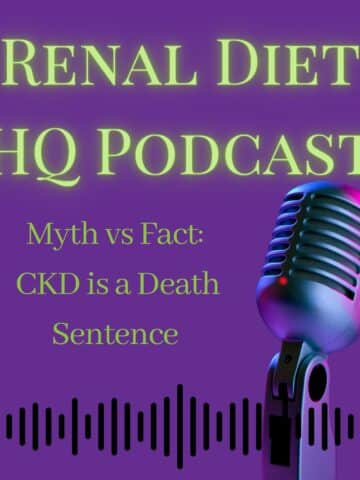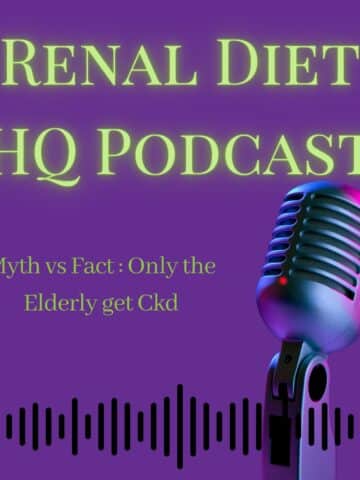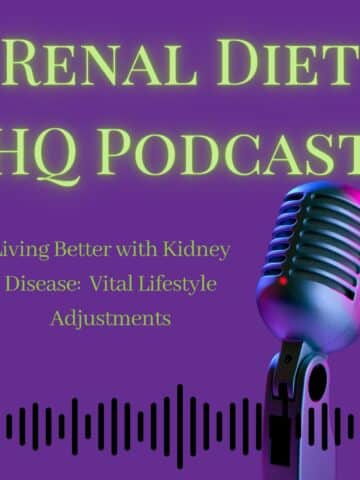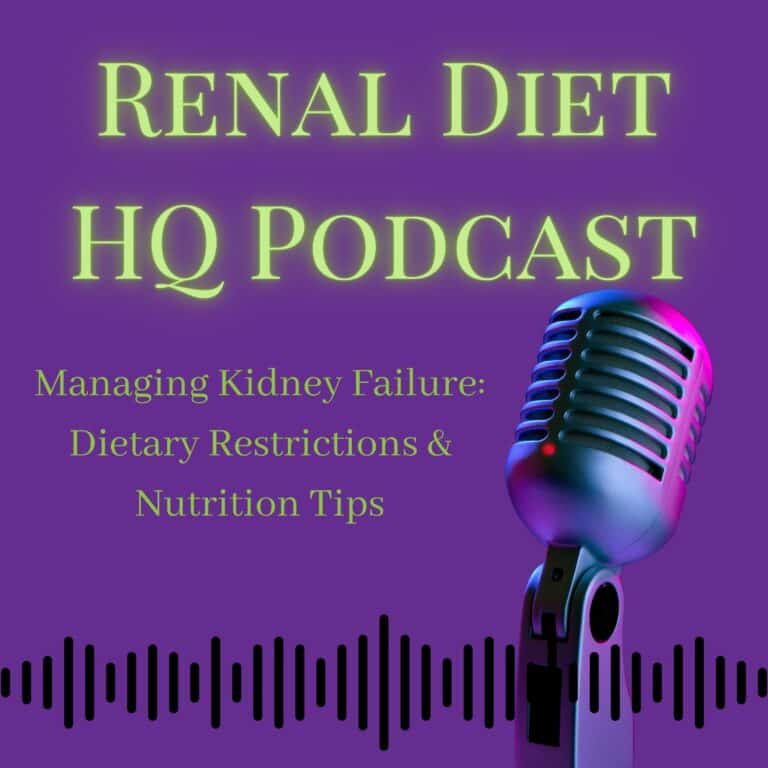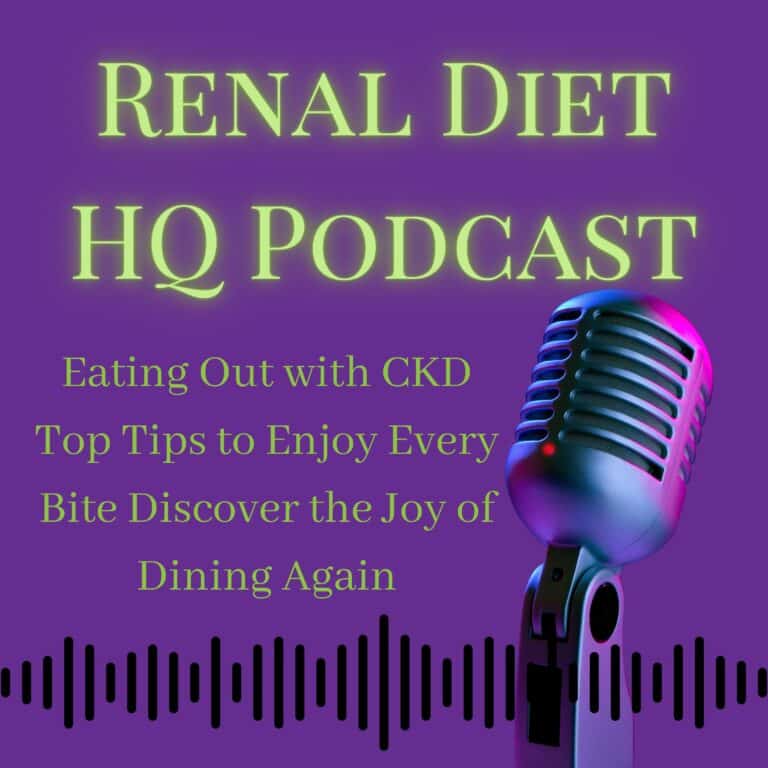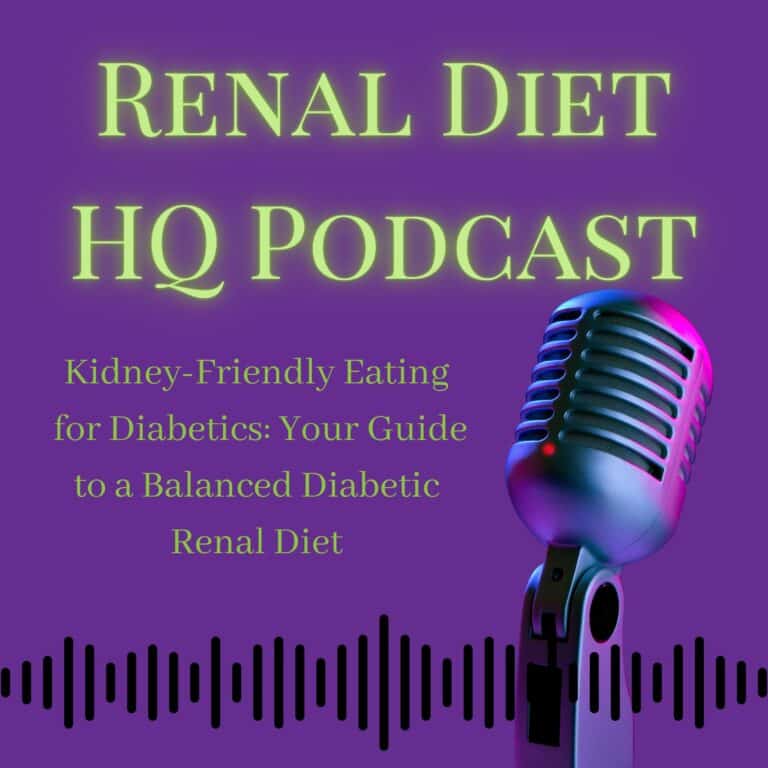Low Protein Diet For Chronic Kidney Disease- Podcast
Podcast: Play in new window | Download
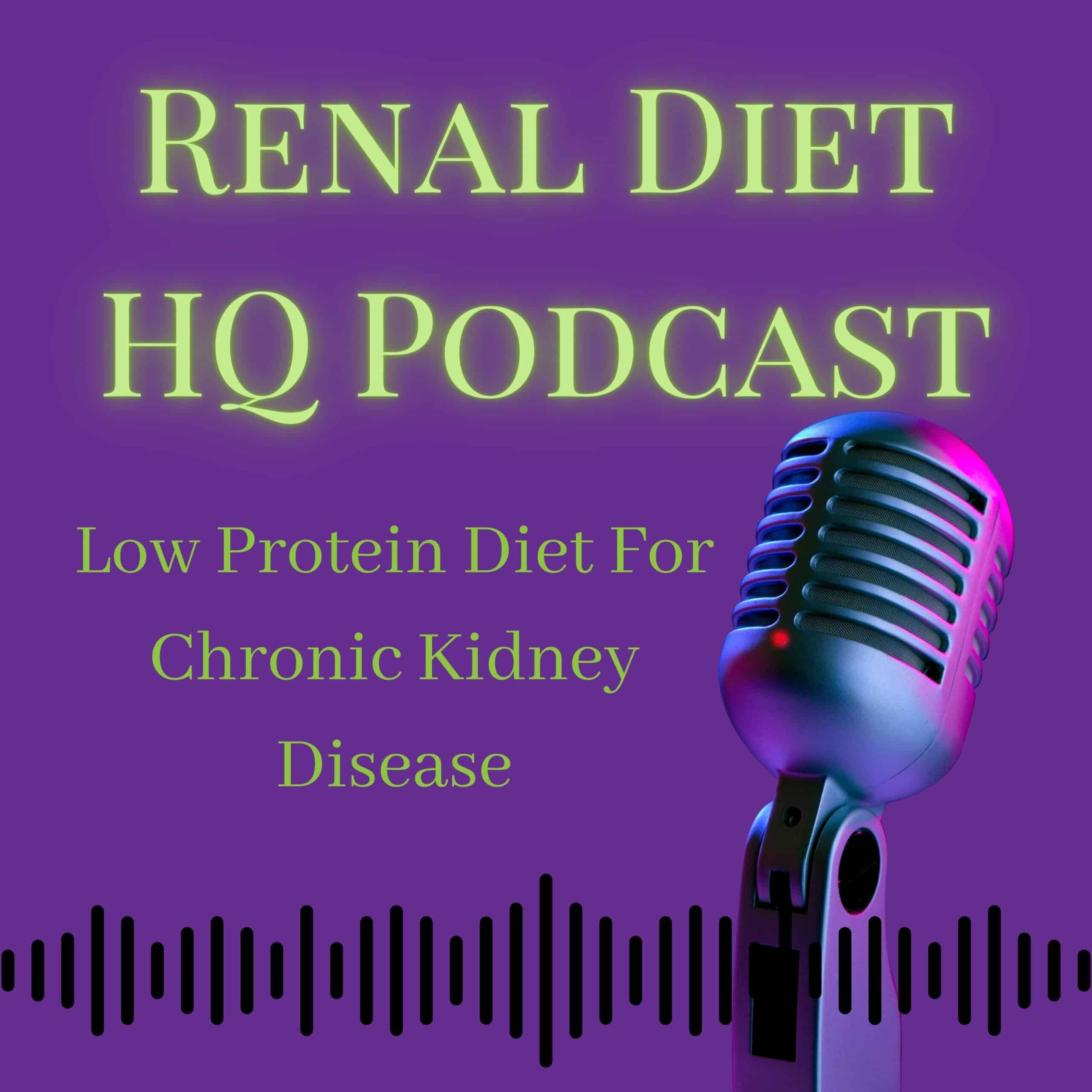
In the vast realm of nutrition, protein takes center stage as one of the most discussed and revered macronutrients. Often celebrated for its role in muscle growth, recovery, and overall health, protein's narrative takes a unique turn for individuals grappling with Chronic Kidney Disease (CKD). Today, we embark on an enlightening journey to understand the delicate relationship between protein and CKD, exploring the significance of a low protein diet and its potential revolution in the health journey of those affected by the disease.
For More Recipes and Ideas --->> Get Your Free Meals and Recipes That Are Perfect for Pre-Dialysis Diets, Pre-Dialysis with Diabetes, or Dialysis Diets.
The Multifaceted Importance of Protein
Protein, often perceived as the architect behind muscle growth, is far more intricate in its roles within the body. Comprised of amino acids, the building blocks of life, proteins play a pivotal role in nearly every biological process. From tissue repair to enzyme and hormone production, their functions are essential for our survival.
Challenges for CKD Patients
As we delve deeper into the world of protein, we uncover the challenges faced by CKD patients in managing protein intake. With compromised kidney function, the filtration of waste products becomes a delicate balance. The strain on kidneys, especially with a regular or high protein intake, can exacerbate the progression of CKD.
Benefits of a Low Protein Diet
While the general population is encouraged to consume ample protein, CKD patients navigate a different narrative. Adopting a low protein diet can significantly benefit these individuals by reducing kidney strain, potentially slowing disease progression, and improving overall quality of life. The careful management of protein intake becomes a strategic approach to support compromised kidneys.
Quality Matters
Not all proteins are created equal. CKD patients need to focus not just on the quantity but also on the quality of protein sources. Lean meats, fish, eggs, and soy products offer high-quality protein with essential amino acids crucial for bodily functions. These choices ensure nutritional needs are met without overwhelming compromised kidneys.
Personalized Guidance and Recommendations
The journey of managing CKD involves personalized guidance. Recommended protein intake varies based on the CKD stage, emphasizing the need to consult with a registered dietitian for tailored recommendations. While managing protein intake is crucial, it's equally important to maintain a balanced diet that includes healthy fats and complex carbohydrates.
Animal vs. Plant Proteins
In the vast and varied world of protein sources, CKD patients must make informed choices. Animal proteins, rich in essential amino acids, can be part of their diet with moderation and variety. However, plant proteins, producing less nitrogen waste, emerge as favorable choices. Lentils, chickpeas, quinoa, and tofu not only provide protein but also pack essential nutrients.
Alternatives and Supplements
For those on highly restricted protein diets, alternatives such as amino acid supplements can be game-changers. These supplements offer essential amino acids without the nitrogen waste associated with whole protein sources. However, caution is necessary, and healthcare professionals should guide their use, ensuring they complement a balanced diet rather than replace whole foods.
The importance of managing protein intake for CKD patients becomes undeniably clear. A low protein diet, when implemented thoughtfully, offers profound benefits—potentially slowing disease progression, reducing kidney strain, and improving overall quality of life. It's not just about reducing protein; it's about making informed choices, striking a balance, and collaborating with healthcare professionals for personalized guidance. In the intricate relationship between protein and CKD, thoughtful management becomes paramount for those navigating the challenges of the disease.

